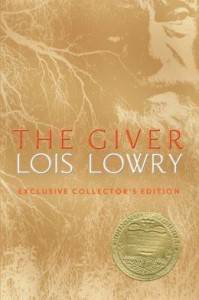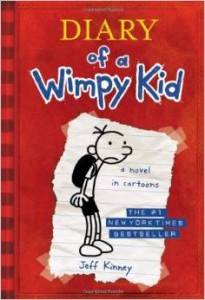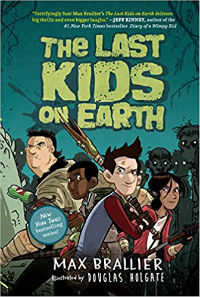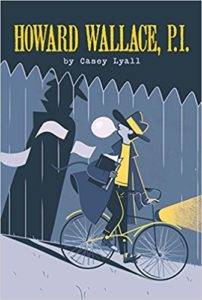Over the past few years, we have seen plenty of middle grade books coming to life on theater screens, like the adaptations of Wonder by R.J. Palacio about homeschooled Auggie entering school for the first time. In 2018, The House with a Clock in Its Walls by John Bellairs, about recent orphan Lewis who goes to live with his mysterious uncle, was released in theaters. These movies are only the beginning of middle grade adaptations taking over at the box office. With even more adaptations on the horizon, it is the perfect opportunity to learn more about the middle grade books inspiring them.
Are we confusing MG with YA?
Let’s face it, it can be difficult to determine if a book labeled for the youths is MG or YA. YA is such a buzzword (like Millennial) that is often thrown around with abandon and more often used incorrectly when it comes to books. Books written for and about young people are often labeled as YA. Even books for adults written by women are thought of as YA.
Could it be the astronomical success of the Harry Potter series that has us all confused? Although the series is sold as middle grade fiction, the darkness of the later books feel more like a YA series. The stories in the later part of the series are often the ones that stick with readers the most. This may be why, if given a choice, we may put Harry Potter into the YA category over its more suitable MG one.
Maybe seeing the YA adaptation of The Giver by Lois Lowry—which is actually MG fiction—confuses us on the MG vs YA discussion. Despite some of the difficult subject matter within the story, it is obvious that the target reader for The Giver is around the same age as the story’s protagonist. In the book, Jonah is 12, so if one sees the adaptation with a 24-year-old man starring in Divergent 2: Electric Boogaloo The Giver, one might think this was just another standard YA dystopian narrative.
 The Giver is anything but; The Giver is a quiet, contemplative classic coming of age book for middle grade readers. However, the popularity of YA fiction adaptations may have enticed Hollywood to give the story an unnecessary age upgrade. This begs the question: in this sea of books written for teens and tweens, how can one know whether a book is for their teen or is better suited for their tween?
The Giver is anything but; The Giver is a quiet, contemplative classic coming of age book for middle grade readers. However, the popularity of YA fiction adaptations may have enticed Hollywood to give the story an unnecessary age upgrade. This begs the question: in this sea of books written for teens and tweens, how can one know whether a book is for their teen or is better suited for their tween?
Is this book MG or YA?
The age of the intended reader categorizes books as either middle grade (MG) or young adult (YA) books. Middle grade books are written for readers between the ages of 8 and 12. YA books are usually written for readers between the ages of 13 and 18. Although there may be some overlap between the two, there are four major differences between middle grade and young adult books.
The main differences between the two categories include YA books being typically longer than middle grade books. Also, YA fiction may contain profanity, violence, or sexual contact, while middle grade books do not include profane words. They also do not contain graphic violence or anything sexual beyond a first kiss. Now that you know the main differences between MG and YA, are you looking to add some middle grade books to your libraries and reading lists?
Why are we seeing an increase in MG adaptations?
One possibility for us seeing more adaptations of MG books within the next few years is the YA adaptation boom may have finally busted. Even as these YA adaptations moved from dystopian futures to stories more grounded in our current reality, Hollywood has not been successful at translating compelling YA books into compelling YA movies. This may be especially disappointing for fans who have waited years for an adaptation to finally come to fruition.
Although YA fans may be eager to see their favorite stories translated on screen, they are not interested in seeing Hollywood’s lackluster and uninspired adaptations of the books they love. The hits for YA adaptations have become too few and far between. For every The Fault in Our Stars, there are too many Vampire Academy and Beautiful Creatures. So…if we are tired of watching YA adaptations, why would we be interested in MG adaptations?
 Well, another possibility for the uptick in MG adaptations is that we are actually in a golden age of middle grade books! According to NPD Bookscan, seven of the ten bestselling books in 2018 were for middle grade readers, with the latest in Jeff Kinney’s Diary of a Wimpy Kid series, The Meltdown, leading the pack. There also continues to be a strong interest internationally for middle grade books. As we continue to see Hollywood make more movies that will do well overseas, and as Hollywood continues to churn out adaptations from the bestsellers list, it should come as no surprise why we are seeing more MG adaptations. Middle grade books are top of the list for readers. Hollywood may be banking on this enjoyment to continue at the box office. Readers and moviegoers have shown their hunger for stories with more diversity and representation. MG adaptations may be the most successful at satiating those appetites.
Well, another possibility for the uptick in MG adaptations is that we are actually in a golden age of middle grade books! According to NPD Bookscan, seven of the ten bestselling books in 2018 were for middle grade readers, with the latest in Jeff Kinney’s Diary of a Wimpy Kid series, The Meltdown, leading the pack. There also continues to be a strong interest internationally for middle grade books. As we continue to see Hollywood make more movies that will do well overseas, and as Hollywood continues to churn out adaptations from the bestsellers list, it should come as no surprise why we are seeing more MG adaptations. Middle grade books are top of the list for readers. Hollywood may be banking on this enjoyment to continue at the box office. Readers and moviegoers have shown their hunger for stories with more diversity and representation. MG adaptations may be the most successful at satiating those appetites.
Which MG books will we see on screen soon?
 These days, we don’t even have to leave our homes to enjoy a good MG adaptation. Streaming giant Netflix is working to increase the options for family entertainment by producing more content from MG books like The Last Kids on Earth by Max Brallier and Douglas Holgate, about Jack and his friends battling zombies and monsters during the apocalypse. The first season for this animated TV adaptation premiered in September 2019.
These days, we don’t even have to leave our homes to enjoy a good MG adaptation. Streaming giant Netflix is working to increase the options for family entertainment by producing more content from MG books like The Last Kids on Earth by Max Brallier and Douglas Holgate, about Jack and his friends battling zombies and monsters during the apocalypse. The first season for this animated TV adaptation premiered in September 2019.
More MG adaptations slated to premiere on Netflix include an animated film adaptation of Escape from Hat, which is expected to be released in 2022. Escape from Hat by Adam Kline is the epic tale of Leek, a lucky rabbit in an unlucky situation. Netflix is also creating an original animated series based on select Roald Dahl stories including Charlie and the Chocolate Factory, Matilda, and The BFG.
 Drew Barrymore’s Flower Film is partnering with The Mother Company to produce two middle grade adaptations: Howard Wallace, PI by Casey Lyall, about 12-year-old who teams up with the new girl at school to solve mysteries, and The Lost Girl by Anne Ursu, about identical twin sisters who separate for the first time and find life unraveling without their sibling. Previously, The Mother Company primarily provided preschool series and parental resources. Now, they want to expand into the tween space by building a library with high quality middle grade content. They found a beneficial partner in Flower Film. Flower Film wants to tell deep and diverse stories for middle grade readers that defy stereotypes.
Drew Barrymore’s Flower Film is partnering with The Mother Company to produce two middle grade adaptations: Howard Wallace, PI by Casey Lyall, about 12-year-old who teams up with the new girl at school to solve mysteries, and The Lost Girl by Anne Ursu, about identical twin sisters who separate for the first time and find life unraveling without their sibling. Previously, The Mother Company primarily provided preschool series and parental resources. Now, they want to expand into the tween space by building a library with high quality middle grade content. They found a beneficial partner in Flower Film. Flower Film wants to tell deep and diverse stories for middle grade readers that defy stereotypes.
Even Reese Witherspoon is getting into the business of adapting middle grade books with 2015 National Book Award finalist The Thing About Jellyfish. In The Thing About Jellyfish by Ali Benjamin, 12-year-old Suzy is convinced her best friend actually died from a rare jellyfish sting instead of by an accidental drowning. Suzy is willing to go to any length to prove her theory, even if it means traveling the globe alone.
Although well known in the world of publishing, the term “middle grade” is less known among the general reading public. Therefore, general readers may not understand the importance of middle grade books in the reading lives of children and families. However, it is essential for readers of all ages to be well versed about middle grade books and to appreciate these books. They help young readers better understand themselves and the world around them. Above all else, with great appreciation for middle grade books comes greater appreciation for all of these upcoming middle grade adaptations!
Source : What’s the Deal With All of These Middle Grade Adaptations?













